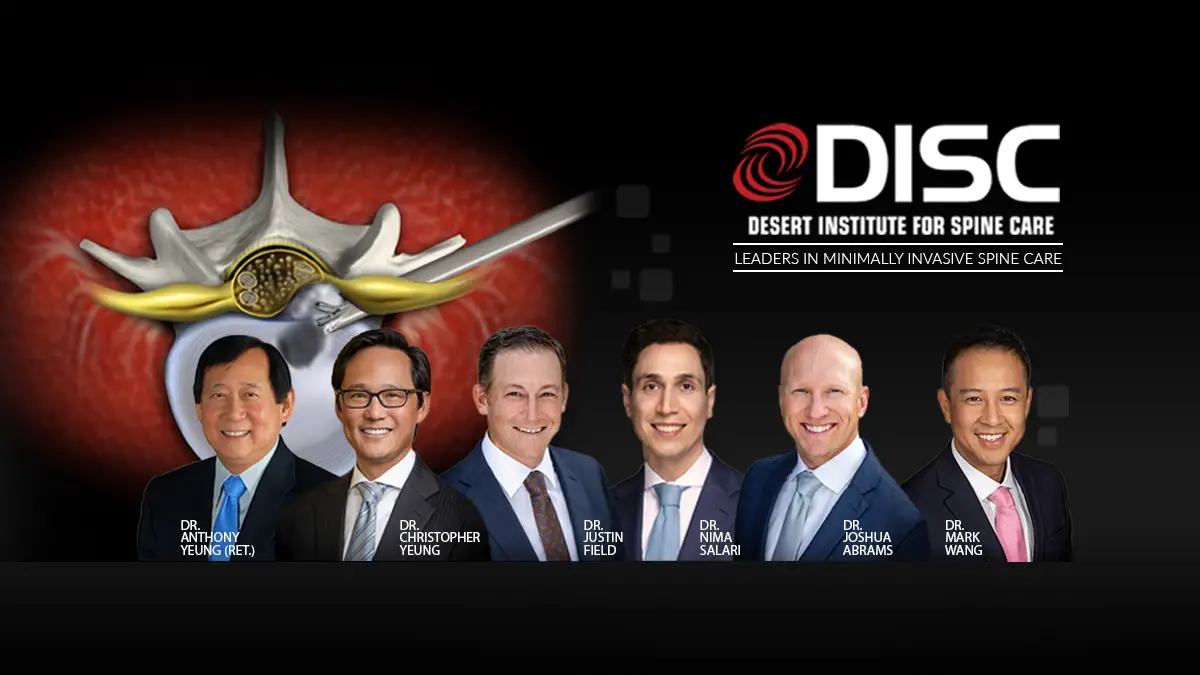Table of Contents
The Desert Institute for Spine Care (DISC) is one of the nation’s most respected and highly sought-after spine care centers. Patients from all over the country seek out DISC’s advanced diagnostic tools, cutting-edge treatments, and highly experienced team of medical professionals. However, patients often have one question: whether or not DISC accepts insurance.
Background on the DISC Institute
Before discussing insurance specifics, it’s crucial to understand what the DISC Institute stands for. The Institute offers treatments for various spinal conditions, such as disc herniations, degenerative disc disease, and spinal stenosis. Their approach is to provide patients with non-surgical alternatives that could help avoid traditional open back and neck surgeries.

Does the DISC Institute Accept Insurance?
Yes, DISC does accept insurance and works with all major health plans, including traditional Medicare, Medicaid, and other government programs. DISC accepts insurance policies, including Indemnity, Preferred Provider Organization (PPO), Point of Service (POS), and Health Management Organization (HMO).
Although several private insurers are also accepted, coverage can vary depending on the policy itself and patient demographics, such as location and age. Furthermore, it may be necessary to call ahead to ensure an individual’s plan is accepted.
In addition to accepting insurance plans, DISC offers a variety of payment options that can help patients manage their out-of-pocket costs. These include CareCredit financing and Healthcare Value Plus programs, which allow treatment fees to be broken down into manageable payments with no interest fees attached if paid off within a certain period. In addition, most major credit cards are accepted at DISC, and checks or cash payments are made directly at a payment desk before service delivery.
Understanding Insurance Acceptance at DISC
Navigating the intricate landscape of medical insurance can be challenging. If you’re considering treatment at DISC, understanding which insurance companies they accept and how the process works can be crucial to your decision-making.
Your Insurance Policy Is A Contract:
First and foremost, it’s crucial to remember that your insurance policy is a legally binding contract. As such:
- You should have a full copy of your insurance policy. If you don’t, procure one and familiarize yourself with the terms.
- If there are ambiguities or you need further clarification, contact your insurance company or, if you receive insurance through your employer, your Human Resources Department.
Types of Insurance Policies:
The kind of policy you have can affect your coverage at DISC. Various policies include:
- Indemnity
- Preferred Provider Organization (PPO)
- Point of Service (POS)
- Health Management Organization (HMO)
Each type has specific terms like annual deductibles, co-insurance, out-of-pocket maximums, and lifetime maximums. Furthermore, some plans offer both in-network and out-of-network benefits, commonly called a “swing plan.”
DISC’s Relationship with Insurance Carriers:
- Medicare: DISC has a direct contract with Medicare.
- Other Insurance Carriers: DISC often works with different insurance companies on an ‘out of network’ basis. If your insurance cannot provide necessary medical care within its network, it might grant a waiver, allowing you to seek treatment outside the network. Such claims are then processed as in-network treatments.
- Industrial Carriers & Workers Compensation: DISC collaborates with these carriers, prioritizing the quick recovery of injured workers. If you’re from outside the state and have a Worker’s Compensation claim, DISC’s Billing Department can help with prior authorizations for your treatment.
Insurance Acceptance at DISC Institute
As of my last training data in September 2021, the insurance acceptance policies at the DISC Institute could vary based on:
- The Specific Location: The DISC Institute has multiple locations, and insurance acceptance might differ from one facility to another.
- Type of Treatment: Due to their innovative and non-traditional nature, some treatments might not be covered by standard insurance plans.
- Direct Agreements with Insurance Companies: The Institute might have direct agreements with specific insurance providers, making the treatment process smoother and more financially accessible for patients using those insurance providers.
Checking Your Coverage
To find out if the DISC Institute accepts your insurance:
- Contact the Institute Directly: This is the most straightforward method. You can get accurate information about the insurance policies they accept by directly contacting the Institute’s administration or financial department.
- Check Your Insurance Provider’s Website: Many insurance companies list the medical facilities and specialists they partner with on their websites.
- Seek Advice from Your Primary Care Physician: Sometimes, primary care providers are aware of the insurance acceptance policies of specialized institutes. They might be able to guide you or refer you to someone who can provide the information.
Things to Consider
- Out-of-Network Costs: Even if the DISC Institute accepts insurance, it might not be “in-network” for your specific insurance plan. In such cases, your out-of-pocket costs could be higher.
- Preauthorization: Some treatments, especially specialized ones, might require preauthorization from your insurance company. Ensure you get this authorization if needed before starting any treatment.
- Alternative Financing Options: If, for some reason, your insurance doesn’t cover the treatment or the coverage is minimal, you might want to inquire about alternative financing or payment options that the DISC Institute offers.
Conclusion
Many prospective patients are concerned about the DISC Institute’s insurance acceptance. While getting accurate, up-to-date information directly from the Institute or your insurance provider is essential, being informed and proactive can ensure you get the treatment you need without unexpected financial burdens. Remember, the medical insurance landscape is ever-changing, so always verify current policies and coverages.
